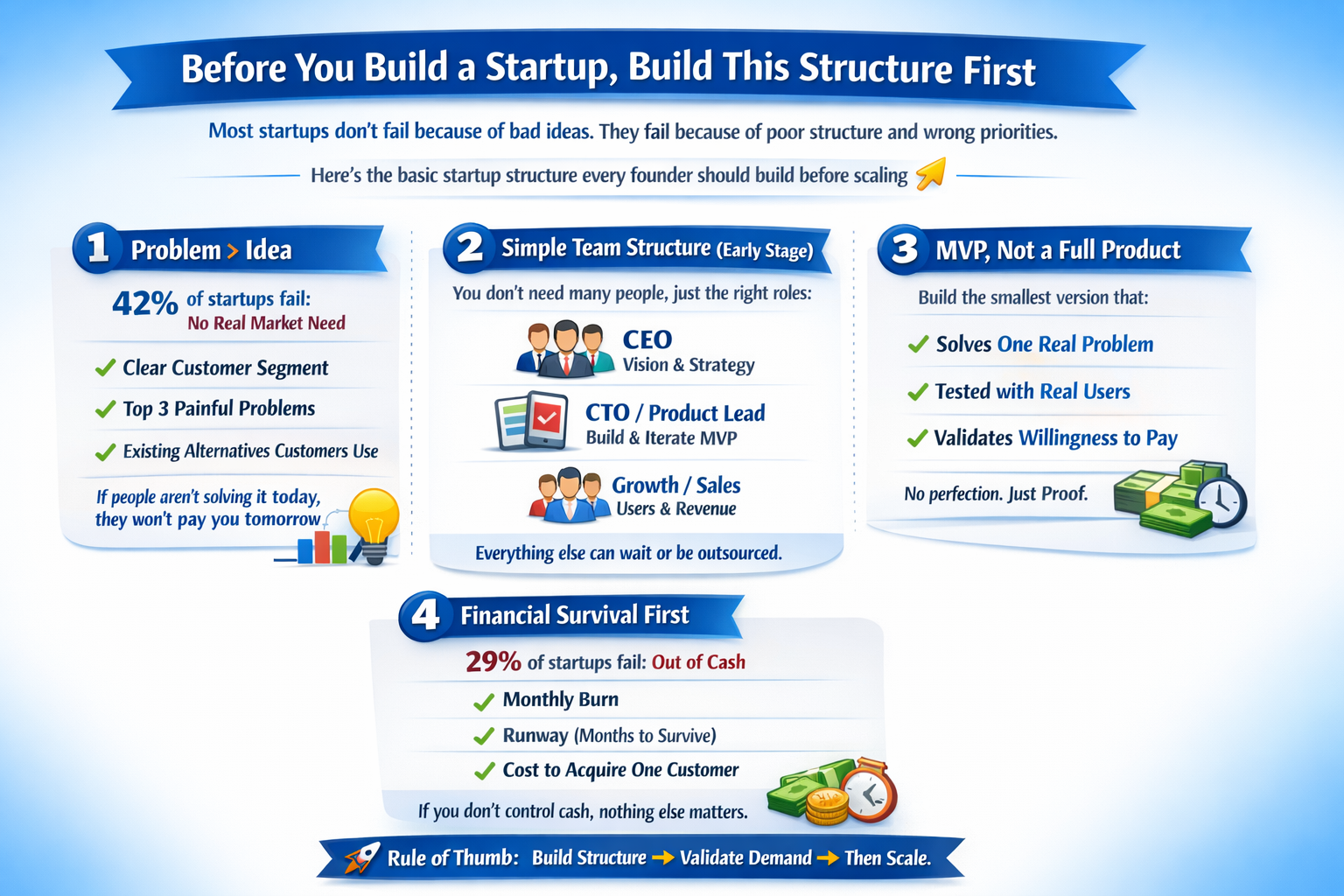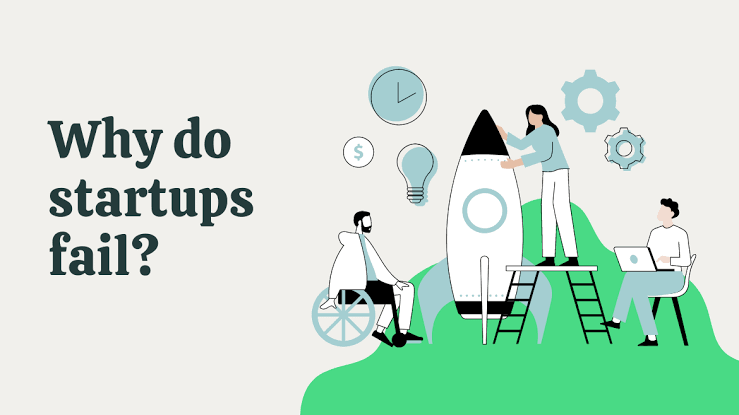Back
brijesh Patel
Founder | Venture Pa... • 5m
step-by-step summary of why most startups fail ### Step 1: Foundational Flaws A startup often fails right from the beginning due to fundamental issues with the business idea or team. * **No Product-Market Fit:** Many entrepreneurs create a solution for a problem that doesn't exist or a poor solution for a real one. Apple's Newton device is an example of a product launched before the market was ready. * **Founder Conflict:** According to the Harvard Business Review, nearly 65% of startups fail because of disagreements between co-founders. * **Poor Marketing:** A great product can still fail without effective marketing. This was a key reason for the failure of Sidecar, even though it had a superior platform to Uber and strong funding. ### Step 2: Operational and Competitive Pressures Even with a good start, startups face intense operational challenges that can lead to collapse. * **Cash Flow Problems:** Managing money is a major hurdle. For instance, a startup might have to pay suppliers long before receiving payment from customers, creating a financial gap. * **Brutal Competition:** Larger companies can use their resources to crush smaller competitors. Amazon did this to diapers.com by selling diapers at a huge loss, forcing the smaller company to sell out. * **Endless Problems:** Building a business involves solving one problem only to face a bigger one, a relentless cycle that wears down founders. ### Step 3: The Venture Capital Trap Seeking funding from venture capital (VC) firms introduces a new set of fatal pressures. * **Pressure for Rapid Growth:** Investors demand a high return on their investment, which forces founders to focus on aggressive growth and higher valuations above all else. * **Loss of Mission:** The original goal of solving a customer's problem gets lost as the focus shifts to maximizing profits to please investors. This happened to BYJU'S, which collapsed after investor pressure led it to prioritise aggressive sales tactics over its educational mission. ### Step 4: Uncontrollable Factors Finally, many elements of success are simply out of an entrepreneur's control. * **Survivorship Bias:** We mostly hear about successes like Uber, ignoring the thousands of failures like Sidecar. This creates an unrealistic perception of the chances of success. * **Privilege and Luck:** Many successful entrepreneurs like Elon Musk started with significant wealth and privilege, which is often overlooked. * **Timing:** A startup can fail simply because the market isn't ready for its product, a "right place at the wrong time" problem that affected many early social media companies.
More like this
Recommendations from Medial
Maniraj N G
Marketing & Systems ... • 1y
The Reality of Product-Market Fit "Most startups don’t fail because of poor execution. They fail because they build something nobody wants. 🚫" Here’s the truth: if you’re not solving a problem people care about, no amount of sales, marketing, or
See MoreDAMALLA PIYUSH NARAYAN
"Building products, ... • 29d
Before You Build a Startup, Build This Structure First Here’s the core startup structure to build before scaling 👇 1️⃣ Problem > Idea 42% of startups fail due to no real market need. Start with: A clear customer segment Top 3 painful problems Exis
See More
Ravinder Chautala
Passionate Entrepren... • 1y
The Importance of the First Step in a Startup Starting a startup feels exciting but also scary. Many people have great ideas, but only a few take the first step. This step is the most important because it turns ideas into reality. You don’t need
See More
Czone wave
Hey I am on Medial • 11m
Fact: 90% of startups fail, but the top reason isn’t lack of money—it’s lack of market demand. Many entrepreneurs focus on funding and operations but forget to validate if people actually need their product or service. Before launching, always test
See MoreRiyaz Saleem
Growth Marketing Hea... • 11m
Many startups focus solely on building the product, but forget to give equal importance to marketing and sales. While creating a great product is essential, it’s not enough to ensure success. Marketing plays a crucial role in making sure the produc
See MoreDownload the medial app to read full posts, comements and news.















/entrackr/media/post_attachments/wp-content/uploads/2021/08/Accel-1.jpg)





















